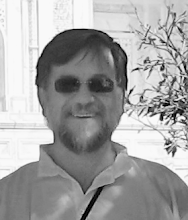“Mon Dieu, Papa,” the prayer started, and I immediately felt hot tears forming . Maybe it was my fatigue, or the stress I had felt in the hearing room for an hour and a half, but when the Bishop of Haiti, Jean Zache Duracin, started the closing prayer with the words “my God, Papa” I was moved by a deep sense of personal connection between the pray-er, the bishop of the largest, and arguably the poorest, diocese in the Episcopal Church, and his God. Unbidden, the ancient and most problematic of all questions came to mind, “How much does the suffering of a person or people have to do with the depth of relationship between the sufferer and God?” I knew that I was witness to an intimate and powerful family moment.
It was a tough decision. But I’m glad I woke early enough to be present in the hearing room at 6:45 for a continuing discussion by the Committee on World Mission. There are twenty-five different committees meeting throughout the ten days of Convention. They are responsible for all that happens: the nuts and bolts of the running of the event, the preparation of the Church's budget, the drafting of legislation. Bishops and Deputies serve on each committee to ensure that voices from both houses are heard. World Mission is the committee that is most concerned with the relationship between The Episcopal Church and the Anglican Communion at large. That means that at this Convention, many of the resolutions that have to do with the tension between the global Church and the Episcopal Church, the issues around the role of human sexuality, are being vetted by World Missions. It’s a very large group with some terrifically talented people.
There are at least thirteen separate resolutions that address actions taken by previous General Conventions and Lambeth Conferences (the decennial meeting of all the bishops of the Anglican Communion) concerning the appropriateness of people in same gendered relationships being ordained in the Church. One of the most controversial of these previous pieces of legislation was passed in the waning moments of the last convention in 2006. It was called B033 and it asked for a moratorium on the consecration of bishops who are in same gender relationship. B033 was seen at the time as an attempt to show good faith towards that part of the international church upset by the consecration of Gene Robinson; it was seen by others as a repudiation of that same action. Many who voted for B033 in 2006, myself included, have had serious misgivings about that action for the past three years.
Thirteen separate resolutions presented to the committee were distilled into one, complex one, that was the topic of conversation this morning (I’ll post it early next week, as soon as it looks like it’s in a final form). It was scrutinized, parsed, and dissected at great length, but in the end was accepted by the majority of the committee members from the House of Deputies; however, members of the House of Bishops were not so clear on their thoughts.
Ray Suarez, of the Jim Lehrer News Hour on NPT and member of St. Columba’s in Washington, D.C., preached at this morning’s Eucharist. It was a stunning sermon and I commend it to you; hopefully, it will be posted on the Episcopal Church website soon. He called us to be "that blessed company of all faithful people" which the Prayer Book talks about. It sounds like “family talk” to me, much like that powerful beginning to the prayer of Bishop Duracin. But are we all talking about the same family? For those bishops who voted against the resolution proposed this morning, and others who will take exception to it when it becomes public, I wonder about their definition of the family, the community of all the faithful. We yearn to call this our God in the most intimate of ways, our nurturing and loving parent. Yet at the same time, there are those who want to define for this God what family means, or at least who is included and in what capacity. Rather than an embrace, this seems like a repudiation of the God I heard so meaningfully called forth in the prayer of the Bishop of the suffering people of Haiti: the God who stands for and with all peoples everywhere, who have no voice, who are in poverty of body and spirit, who are marginalized, denied justice. I, for the life of me, cannot understand how to reconcile the two.
